While vehicle safety experts generally agree on the best practices for keeping babies and children safe while riding in a car, each state has individual laws to address these concerns. The laws and recommendations don’t always match up, as the law sometimes makes concessions based on what can reasonably be enforced.
While you always want to follow the safest practices for any children in your vehicle, it’s also essential to know the Maine car seat laws so that you’re not in violation. Read on to learn more about Maine’s laws for children of different ages and sizes and any exceptions to the laws.
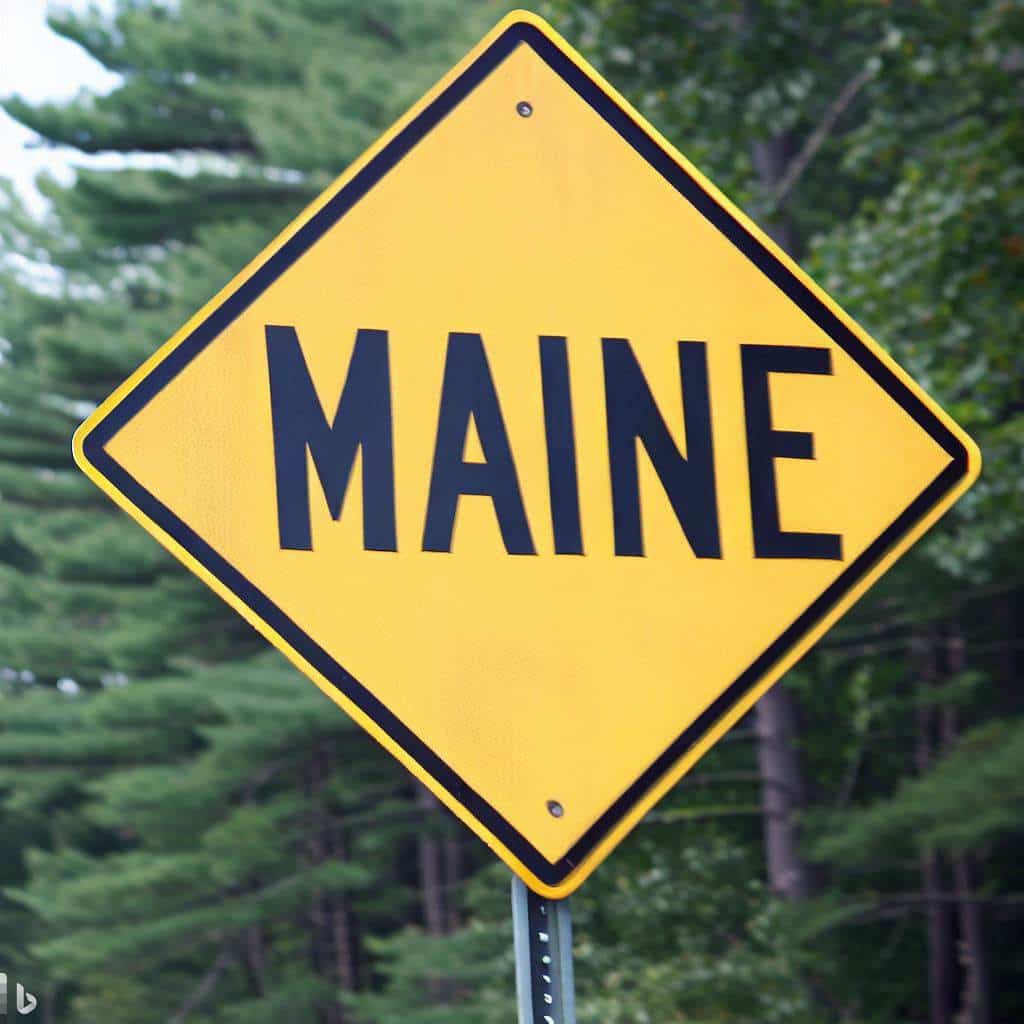
Maine Car Seat Laws: General Information
Maine’s car seat laws are addressed in Title 29-A: Motor Vehicles and Traffic, Chapter 19: Operation, Subchapter 1: Rules of the Road, § 2081 Use of safety seat belts and child restraint systems. These laws were recently updated to improve safety, and changes went into effect at the beginning of January 2019.
In general, children under 40 pounds must ride in a child restraint system that uses a harness and buckles to the vehicle’s seat. Children between 40-80 lbs and under the age of eight must ride in a belt-positioning restraint system.
Infant Car Seats
Infant car seats are rear-facing car seats designed for use from birth. Most of these seats are carriers that snap into a base. The base attaches to the vehicle’s seat with a seatbelt. Babies typically ride in a carrier seat from birth until they reach around 30-35 lbs, which is usually between the ages of nine months and two years old.
In Maine, children aren’t required to ride in a carrier seat during infancy but must be in some type of rear-facing seat that accommodates their weight and height.
Rear-Facing Seats
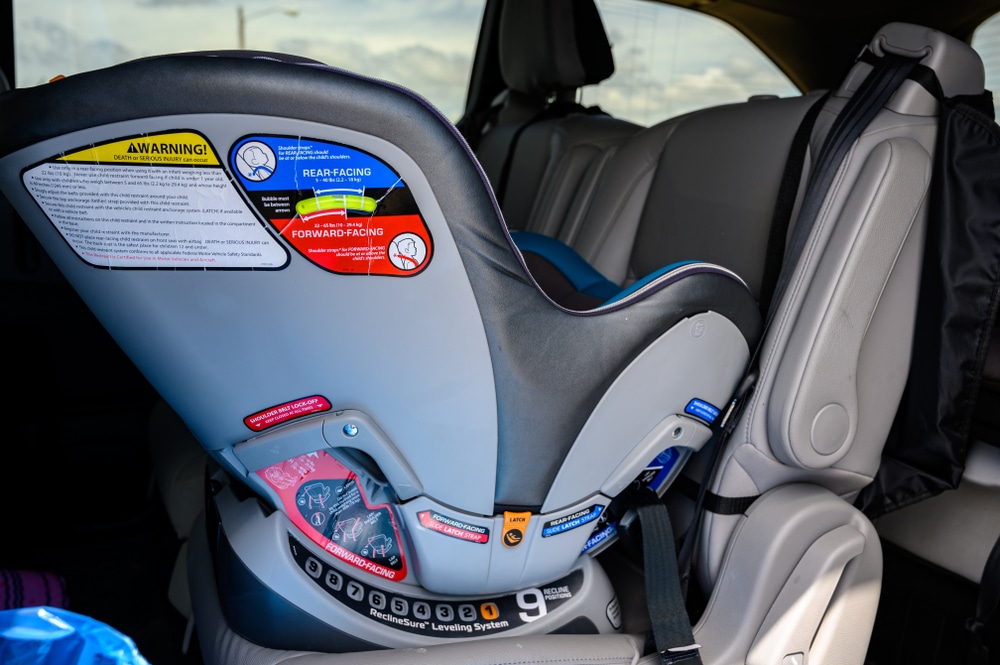
Maine has some of the strictest rear-facing car seat laws in the country. According to section 2-A, children under two must ride in a rear-facing system. If a child is under two and has exceeded the max height and weight for rear-facing as specified by the car seat’s instructions, they may use the seat in the forward-facing position.
Forward-Facing Seats
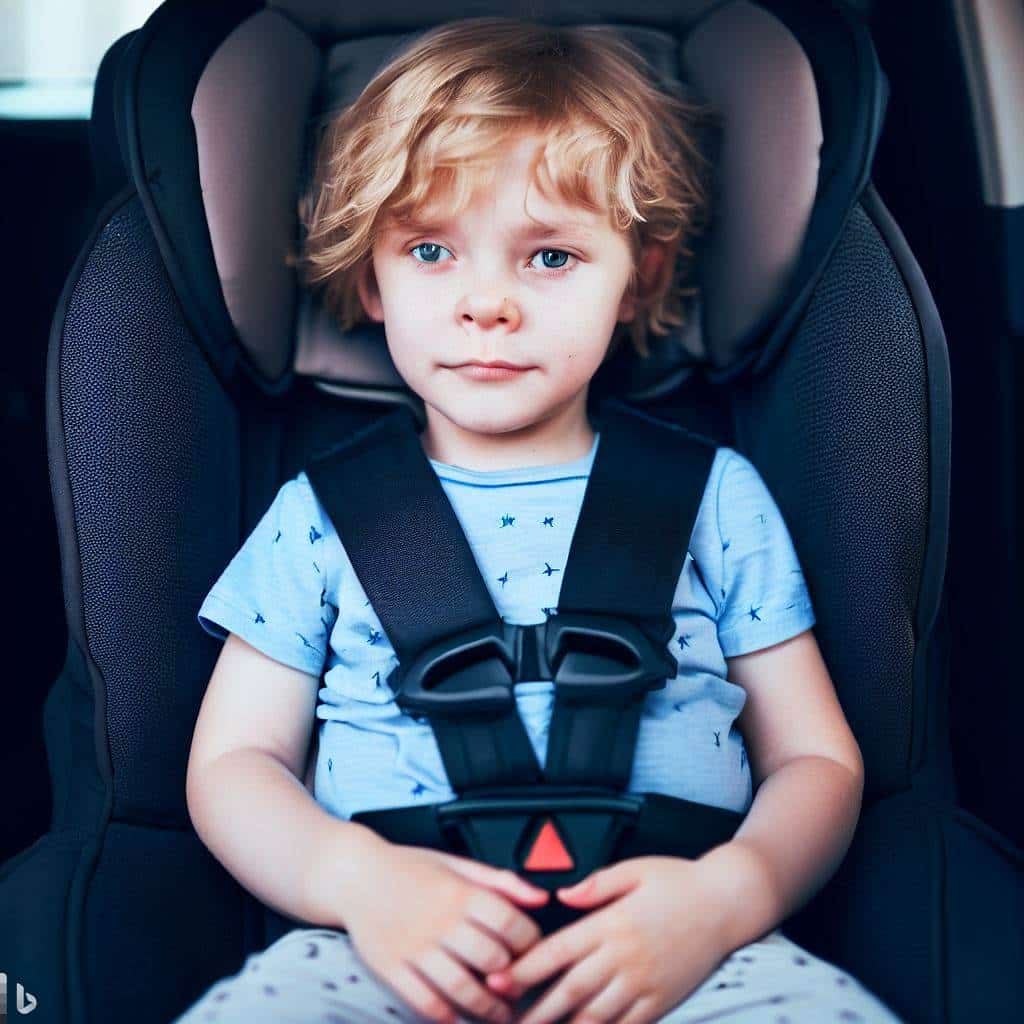
Forward-facing seats are for older infants and toddlers. They use a five-point harness and secure to the seat with the car’s seat belt. Section 2-B of the law requires that kids over the age of two and weighing less than 55 lbs should ride in a forward-facing seat.
While Maine states these laws, they also recommend that children stay in a rear-facing seat until they max out of the height and weight restrictions as stated by the seat. Additionally, many forward-facing seats allow children to ride beyond 55 lbs, some going up to 65 lbs and beyond. Maine recommends that kids ride forward-facing between the ages of four and seven.
Booster Seats
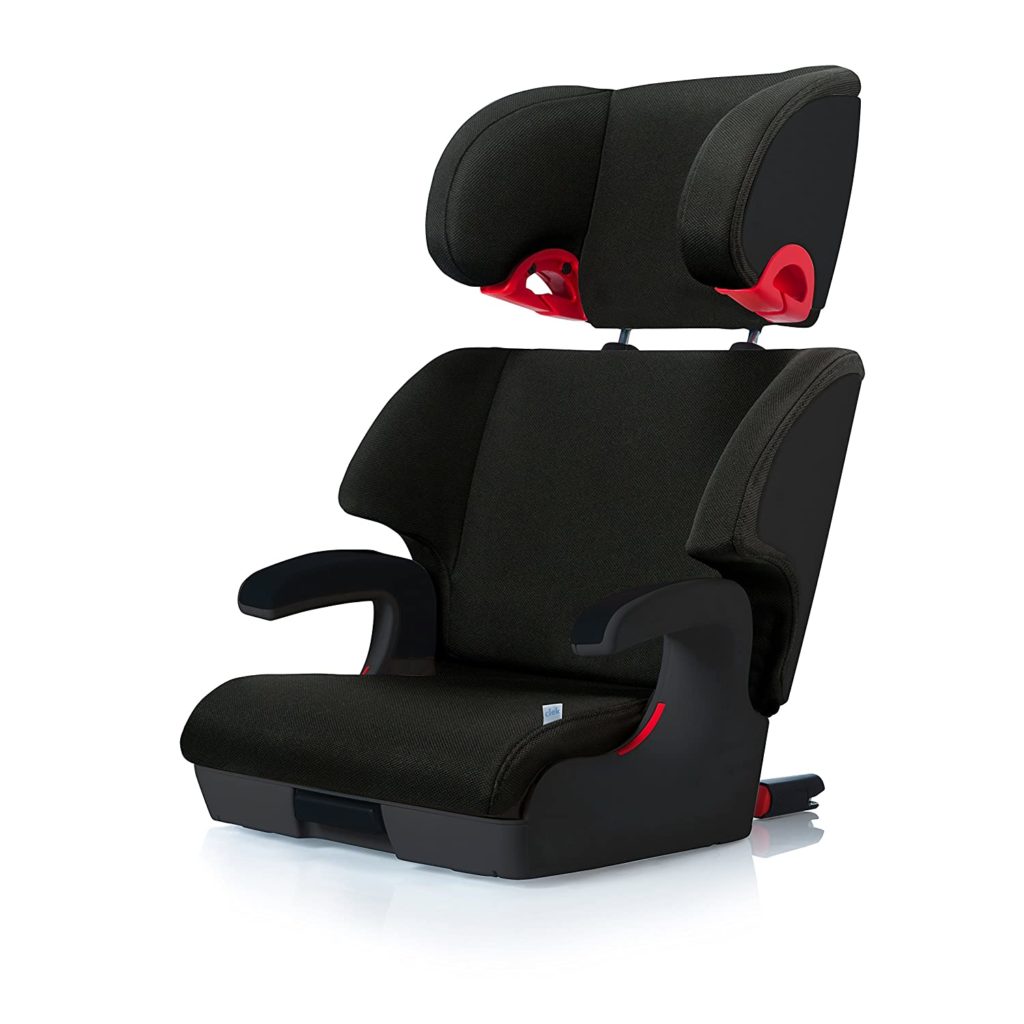
Section 3-A addresses the booster seat laws for Maine. The law states that kids under 80 lbs, under 57 inches tall should be in a booster seat once they’ve outgrown a forward-facing seat. Maine recommends that kids between the ages of eight and 12 ride in a booster seat.
Booster seats work by positioning a seat belt properly on a child who’s too short to use a seat belt alone. These may have a back or may be backless.
Convertible Car Seats
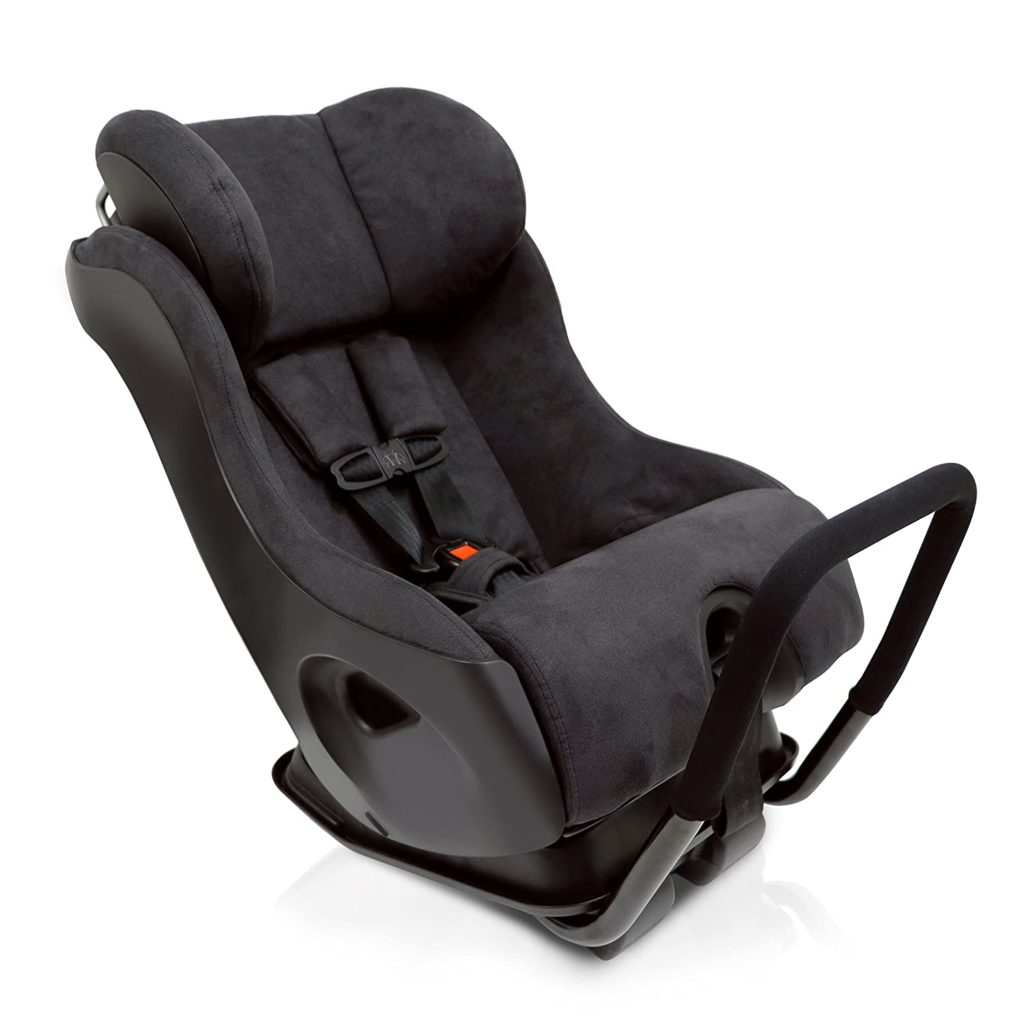
Convertible car seats can fit a child throughout several stages of development. Many are made to be rear- and forward-facing and can last a child through infancy and toddlerhood. Others also include a booster seat option so that kids can use them until they’re ready to use a seatbelt alone.
Maine allows the use of convertible car seats, as long they’re being used correctly and the child is in the proper position according to the law and manufacturer specifications.
When Does Maine Allow Kids to Ride in the Front Seat?
According to section 3 of the Maine seat belt law, all children under 18 must wear a seat belt when riding in a vehicle if they’ve grown out of a child restraint system. Children under the age of 12 aren’t allowed to ride in the front seat unless they’re in a vehicle that doesn’t have a back seat.
Penalties for Failure to Comply With Maine Car Seat Laws
Maine carries some fairly hefty penalties for failure to comply with their car seat laws in comparison with other states. For your first offense in disobeying any of the above laws, you’ll face a fine of $50.The fine is $125 for the second offense and $250 for the third offense.
After the third offense, you’ll be charged $250 for each subsequent offense. A court can’t suspend these fines.
Maine Car Seat Law Exceptions
There are very few exceptions to the car seat laws stated above. While other states may allow for car seat and seat belt rules to be bent in situations where there are more riders in a car, Maine makes no exceptions for children under 18. Children must always be properly restrained at all times.
Medical Conditions
The laws regarding car seats, booster seats, and seat belts don’t apply if the child has a medical condition and a doctor has decided that it’s unsafe for the child to ride in a car seat. The driver will need documentation from the physician.
The documentation must include the doctor’s reasoning for the decision and their suggested alternative for a safety restraint system. The document will expire after one year, so you will need to renew it if necessary. If an officer pulls you over, you’ll be required to show the documentation, and you must have your child in the recommended restraint system.
How to Make Sure Your Car Seat Is Properly Installed
A car seat is only effective if you properly install it. Many car seats and their instructions can be confusing, and you may be worried that you haven’t installed them correctly. Fortunately, Maine has locations across the state where you can have your car seat inspected.
At these locations, a trained car seat technician will inspect your car seat and your installation. They’ll also give you a one-on-one session where they’ll teach you to install a car seat correctly.
What to Do if You Can’t Afford a Car Seat in Maine?
Like many other states, Maine has taken measures to help people from low-income families get car seats. If your family qualifies for the WIC program in Maine, you also qualify for a free car seat. There are distribution centers located around the state where you can get a seat.
When you get your free seat, you’ll also receive training on how to install and use the seat.
Final Thoughts
Maine car seat laws are rigorous and designed to follow best practices for keep children safe while in a vehicle. The state also has severe penalties to ensure all drivers take the necessary precautions when kids are in their vehicles. By following these laws and the recommendations of your federally-approved car seat, you can ensure your child’s safety while in the car.





